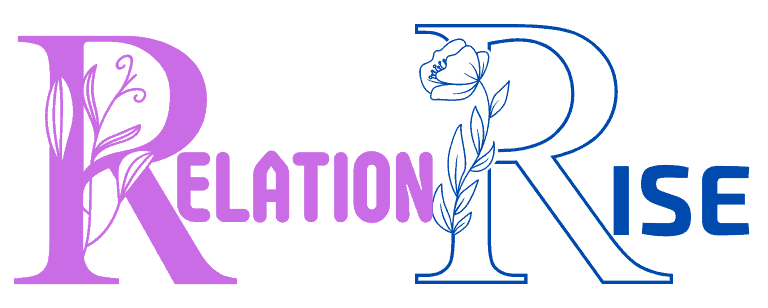What Does Nature of Business Relationship Mean
The nature of a business relationship refers to the characteristics and dynamics of the interaction between two or more parties involved in a business transaction. In this relationship, the parties define the terms, expectations, and roles that they will fulfill as part of their collaborative effort.
Understanding the nature of the business relationship is crucial for establishing effective communication, setting clear goals, and ensuring mutual understanding and trust between the parties involved.
Understanding The Nature Of Business Relationship
In the business world, a business relationship refers to the connections formed between two or more entities based on a mutual interest in conducting commercial activities. This partnership can take various forms, such as a buyer-seller relationship, joint venture, strategic alliance, or even a franchise agreement.
Establishing strong and healthy business relationships is crucial for long-term success. Such relationships foster trust, collaboration, and effective communication between parties. Valuable business relationships can lead to increased sales, new opportunities, access to resources, and mutual growth.
Nature of business relationship encompasses the characteristics and dynamics involved in a partnership. It encompasses factors such as the level of commitment, shared goals, level of control, level of independence, contractual aspects, and level of interdependence between the parties involved.
Key Elements Of The Nature Of Business Relationship
The nature of a business relationship is dependent on several key elements. Trust and credibility form the foundation of any successful business partnership. Establishing trust between involved parties is crucial for effective collaboration and communication. This trust enables businesses to work towards mutual benefits and goals, ensuring a fruitful relationship. A clear understanding of the roles and responsibilities of each party is essential to prevent any misunderstandings or conflicts. These roles and responsibilities should be clearly defined in legal agreements and contracts, which provide a framework for the business relationship. By adhering to these key elements, businesses can foster a strong and sustainable nature in their business relationships.
Factors Influencing The Nature Of Business Relationship
Factors influencing the nature of business relationship can vary based on various factors such as the type of industry or sector, size of the organizations involved, cultural differences, geographical location, and previous experiences and reputation. The type of industry or sector plays a crucial role in determining the nature of business relationship as different industries may have different business dynamics and requirements. The size of the organizations involved can also impact the nature of the relationship as larger organizations may have more complex and formalized relationships, while smaller organizations may have more informal and flexible relationships. Cultural differences, including language, customs, and communication styles, also contribute to shaping the nature of business relationships. Geographical location can also influence the relationship, especially in terms of logistics, supply chain, and proximity. Additionally, previous experiences and reputation can shape the nature of business relationships as trust and credibility are important factors in establishing and maintaining successful relationships.
Building Trust And Credibility
Transparent communication is a vital aspect of fostering trust in a business relationship. When both parties openly share information, concerns, and feedback, it sets the foundation for a solid partnership. Building trust also requires delivering on promises. Consistently meeting deadlines, fulfilling commitments, and delivering quality work builds confidence and credibility. Honesty and integrity go hand in hand with trust. Being truthful in all interactions, admitting mistakes, and taking responsibility for them creates a sense of authenticity and reliability. Establishing trust and credibility is crucial in business relationships as it can lead to long-term partnerships, increased collaboration, and mutual success.
Effective Communication And Collaboration
Active listening: Actively listening to the other party’s needs, concerns, and ideas is crucial for establishing a strong business relationship. This involves paying attention, avoiding interruptions, and clarifying understanding. By demonstrating active listening, both parties can feel valued and understood.
Clear and concise communication: Clear and concise communication ensures that both parties are on the same page and understand each other’s expectations and goals. This involves using simple language, avoiding jargon, and summarizing important points to avoid misunderstandings.
Regular meetings and updates: Regular communication through meetings and updates helps keep the business relationship strong. It allows both parties to discuss progress, address concerns, and make necessary adjustments. By keeping each other informed, collaborators can avoid surprises and maintain trust.
Collaborative problem-solving: Working together to find solutions to challenges is essential for effective collaboration. This involves brainstorming ideas, considering different perspectives, and finding mutually beneficial resolutions. By fostering a collaborative problem-solving approach, the business relationship can grow stronger.
Establishing Mutual Benefits And Goals
Establishing a mutually beneficial and goal-oriented nature of business relationship is crucial for success in any industry. This involves identifying shared objectives between parties involved, allowing for a collaborative approach towards achieving common goals. By doing so, both parties can work together towards creating win-win situations, where each party benefits from the relationship. Moreover, the focus is on building long-term partnerships that are sustainable and built on trust and cooperation.
Clarifying Roles And Responsibilities
The nature of a business relationship refers to the dynamics and expectations between parties involved. It is crucial to clarify roles and responsibilities to ensure smooth collaboration. Defining roles and expectations sets a clear understanding of each person’s tasks and duties. This helps prevent confusion and minimizes conflicts that may arise due to overlapping responsibilities. Assigning tasks and responsibilities based on individual strengths and expertise ensures efficient workflow and maximizes productivity. It is also important to establish accountability, where each party takes ownership of their assigned tasks and is responsible for their completion. This fosters a culture of trust and reliability within the business relationship. By clarifying roles, defining expectations, assigning tasks, and establishing accountability, the nature of the business relationship can be effectively managed.
Legal Agreements And Contracts
Legal agreements and contracts are critical in defining the nature of a business relationship. By having formal documentation in place, both parties involved can establish clear expectations and protect their interests. Importance of formal documentation: Having a written agreement helps to ensure that all parties are on the same page regarding their roles, responsibilities, and obligations. It provides a framework for resolving disputes and minimizes misunderstandings. Negotiating terms and conditions: When entering into a business relationship, it is crucial to negotiate the terms and conditions to ensure that they are fair and favorable to all parties involved. This involves discussing and mutually agreeing upon crucial aspects such as scope of work, payment terms, and timeline. Seeking legal advice if necessary: In complex or high-stakes business relationships, it is advisable to seek legal advice to ensure the agreement is legally enforceable and protect your rights and interests. Legal professionals can provide valuable insights and ensure that the contract is in compliance with relevant laws and regulations.
Regular Evaluation And Feedback
Assessing the progress and effectiveness of a business relationship is crucial for success. Regular evaluation allows both parties to identify strengths and areas for improvement. Soliciting feedback from both parties allows for an open and transparent communication channel. This enables a deeper understanding of each other’s expectations, needs, and concerns. It’s important to create a safe and non-judgmental environment where all feedback is welcomed.
To ensure a healthy business relationship, addressing concerns or issues promptly is vital. By acknowledging and resolving any concerns or issues in a timely manner, both parties can maintain trust and prevent them from escalating. This also demonstrates a commitment to the success of the partnership.
Continuous Communication And Adaptation
Continuous communication and adaptation are key aspects of a successful business relationship. Keeping the lines of communication open allows both parties to stay informed, share information, and address any issues that may arise. It is important to have a flexible approach and a willingness to adapt to changing circumstances. This allows for proactive problem-solving and conflict resolution, ensuring that the business relationship remains strong and productive.
Collaboration And Knowledge Sharing
Sharing resources and expertise is a crucial aspect of the nature of business relationship. It involves the exchange of knowledge and skills among partners or organizations working together. By pooling resources, partners can benefit from each other’s strengths and capabilities, leading to improved outcomes and efficiency. This collaboration allows for the sharing of expertise, which can enhance problem-solving and decision-making. Engaging in joint projects or initiatives fosters teamwork and creates opportunities for learning and growth. Moreover, it encourages innovation and creativity as partners bring their unique perspectives and ideas to the table. By working together and leveraging each other’s strengths, businesses can achieve shared goals and create a win-win situation. In the dynamic and interconnected business landscape, collaboration and knowledge sharing have become essential for success.
Celebrating Success And Milestones
Recognizing achievements and milestones is an essential part of celebrating success in a business relationship. It allows us to show appreciation and gratitude for the hard work and dedication put forth by our team. By acknowledging and celebrating achievements together, we not only enhance the positive atmosphere within the company but also motivate and inspire our employees to continue their outstanding efforts. This creates a sense of unity and camaraderie, fostering a productive work environment. Whether it’s hitting a sales target, completing a successful project, or reaching a significant milestone, we understand the importance of acknowledging and celebrating these accomplishments. By doing so, we strengthen the bond within our team and establish a culture of success and growth. Celebrating success and milestones is not just about the achievements themselves but also about the journey we take together as a team.
Continuous Improvement And Growth
The nature of business relationships is often characterized by the need for continuous improvement and growth. This involves identifying areas for improvement within the business and taking the necessary steps to enhance performance. By analyzing business processes and operations, companies can identify bottlenecks, inefficiencies, and areas of potential growth. Learning from mistakes and setbacks is crucial in this process, as it allows organizations to adapt and evolve.
Striving for continuous growth and development is an ongoing effort that requires a proactive approach. Businesses need to embrace innovation, stay updated with industry trends, and invest in employee skills and knowledge. This ensures that they remain competitive in a rapidly evolving business landscape.
Frequently Asked Questions On What Does Nature Of Business Relationship Mean
What Is The Nature Of A Business Relationship?
A business relationship refers to the connection between two or more parties engaged in commercial activities. It involves mutual interactions, exchanges, and transactions to achieve common goals and success.
What Is An Example Of A Business Relationship?
A business relationship example can be a company working with a supplier to source materials for manufacturing.
What Do You Mean By Nature Of Relationship?
Nature of relationship refers to the type of connection or bond between individuals or entities. It encompasses the dynamics, roles, and mutual interactions that define the association, whether it’s personal, professional, or legal in nature. Understanding the nature of a relationship helps determine the expectations, responsibilities, and boundaries involved.
Conclusion
Understanding the nature of a business relationship is crucial for achieving success in today’s competitive market. By recognizing the dynamics, expectations, and boundaries involved, businesses can foster productive partnerships, build trust, and adapt to changing circumstances. Developing a clear understanding of the nature of these relationships is essential for long-term growth and sustainability.
Through open communication, effective collaboration, and mutual respect, businesses can maximize their potential and achieve their goals.



